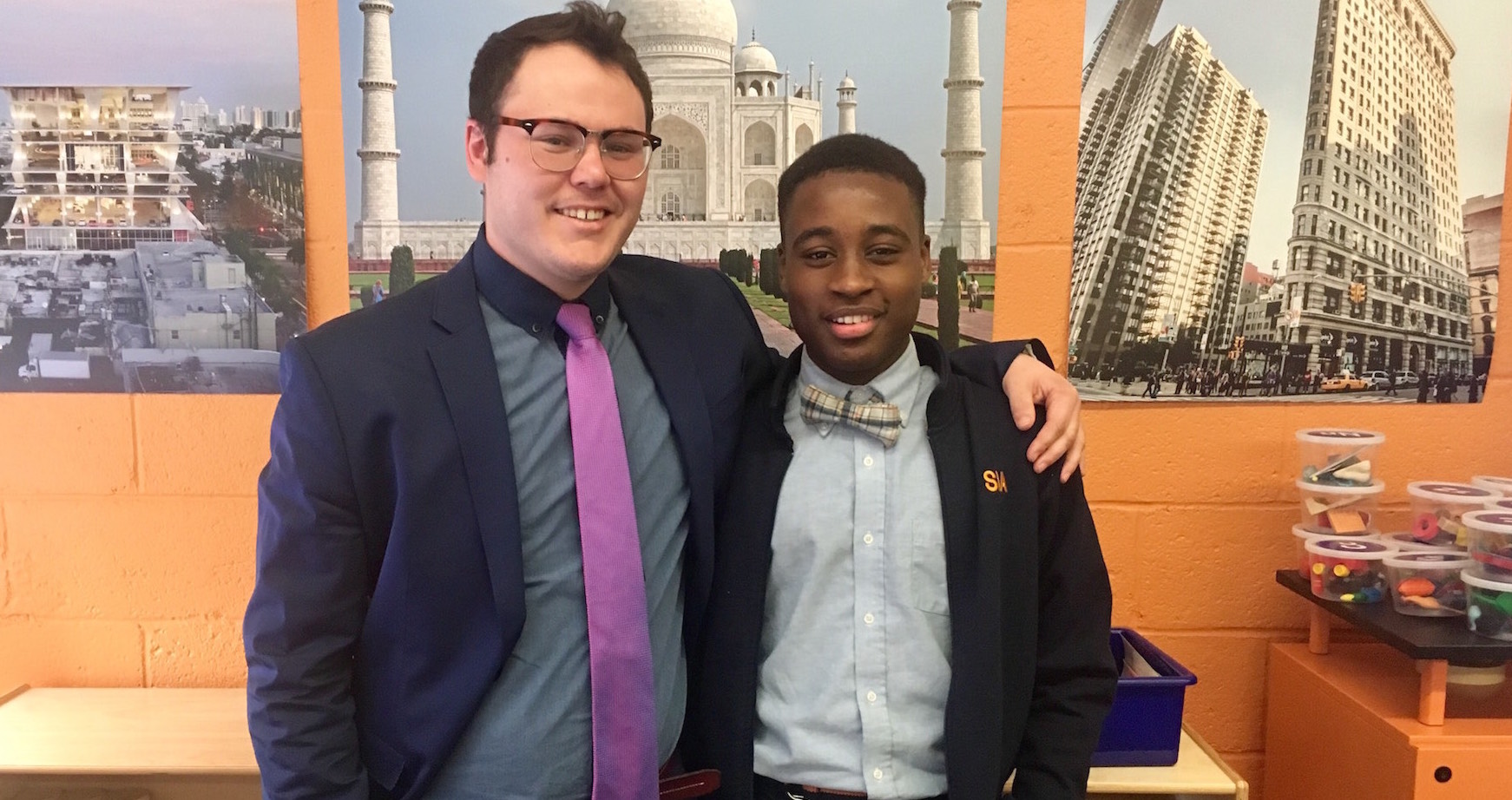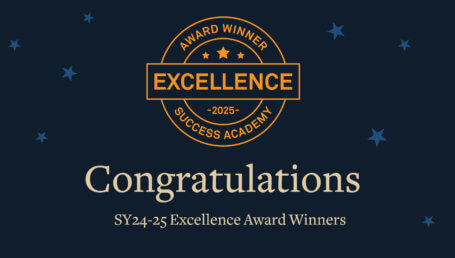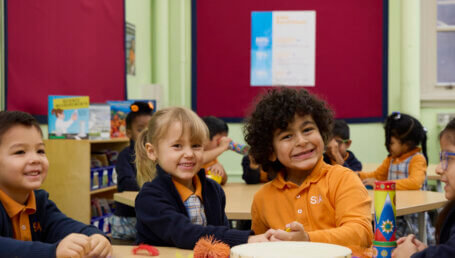
When Nolan McDaniel and Malik Sahabi first unveiled their poem — a thought-provoking spoken-word piece that they coauthored — it was in front of an auditorium packed with scholars, teachers, and families. They electrified their listeners, who snapped their fingers and cheered with enthusiasm at what turned out to be one of the highlights of the Success Academy Harlem Central Poetry Slam.
Since then, the entire school has been talking about “Black Boy, White Man” and the collaboration between Mr. McDaniel, a STEM lead teacher who has been at SA Harlem Central for two years, and Malik, a creative eighth grader.
In a recent conversation with Mission Possible, the two shared insights about the experience and discussed their special relationship as teacher and scholar, advisor and advisee, and as cowriters of a truly inspirational piece of poetry. You can read excerpts from the conversation, below.
Why did you decide to write together about race and relationships?
Malik: For me, it was important to express myself because people don’t often speak out about their experiences with race. I hope our poem might give more people motivation to talk about it.
Mr. McDaniel: When I graduated from law school from the University of Tennessee, I knew that I wanted to get involved with education reform. But in the education reform world, there are a lot of opinions about white men teaching in black schools. We thought it was important to share a personal experience about how mutually beneficial this can be if approached the right way.
Does speaking openly about race make a difference in the classroom?
Malik: I’ve always felt more comfortable in Mr. McDaniel’s classroom because he speaks so openly and so often about his differences and the different experiences he had growing up. He always makes sure that we talk about the multiple viewpoints on an issue in our class, which makes us feel comfortable speaking up.
Mr. McDaniel: I think it’s naive and counterproductive to classroom discourse in any subject to ignore implicit bias and cultural differences. I’m from a small town in East Tennessee. I can’t possibly expect to have experienced the same life events that my kids from Harlem have. I do believe, however, that both my commitment and their commitment to being open and comfortable with our different life experiences, biases, and perspectives allows us to connect through those differences.
What was it like to collaborate?
Malik: We had a good relationship before we started writing, because Mr. McDaniel is my advisor and he also was my teacher last year. The fact that we had this relationship helped inspire me to keep going. The experience of getting to write poetry with a teacher was really the best part because getting to work alongside your teacher on a topic that you are interested in doesn’t happen often.
Mr. McDaniel: We would each write a section from our perspective in a shared document and then every Monday, we’d have lunch together to read and critique each other’s draft. Some days I needed to encourage Malik to write, but for the most part it was a truly collaborative experience. Poetry was perfect for this topic because we wanted it to come across as a dialogue.
How has your poem affected both you and your school community?
Malik: The Poetry Slam raised awareness of how important it is for young people and adults to discuss race. It encouraged students to speak more openly about race issues in class settings like advisory and current events. Teachers and parents congratulated both of us, and they were in shock over how much emotion was in our piece. They were really impressed by the message that came from a spoken-word poem.
Mr. McDaniel: It definitely sparked a lot of conversations. I spoke with other teachers about writing with Malik and how we navigated such an important topic. Scholars and parents have pulled me aside for conversations — it opened avenues for everyone to have more discussions about race and differences and how we can bridge those gaps. Since then, my class has continued to discuss race. After reading Martin Luther King Jr.’s “I Have a Dream” speech, we talked about how different it was for me to read it versus them. We recently discussed the Sacramento police shooting and how it relates to race relations in the classroom, in the community, and across the nation.










